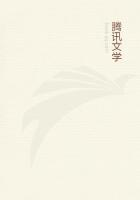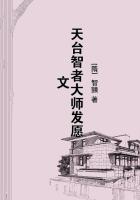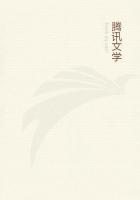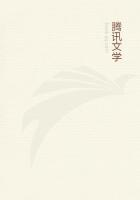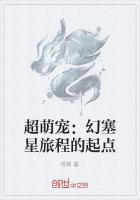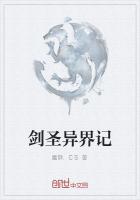How fortunes were won in those stirring days may be discerned from the record of young Derby's ventures while in the Orient.In 1788 the proceeds of one cargo enabled him to buy a ship and a brigantine in the Isle of France.These two vessels he sent to Bombay to load with cotton.Two other ships of his fleet, the Astrea and Light Horse, were filled at Calcutta and Rangoon and ordered to Salem.It was found, when the profits of these transactions were reckoned, that the little squadron had earned $100,000 above all outlay.
To carry on such a business as this enlisted many men and industries.While the larger ships were making their distant voyages, the brigs and schooners were gathering cargoes for them, crossing to Gothenburg and St.Petersburg for iron, duck, and hemp, to France, Spain, and Madeira for wine and lead, to the French West Indies for molasses to be turned into rum, to New York, Philadelphia, and Richmond for flour, provisions, and tobacco.These shipments were assembled in the warehouses on Derby Wharf and paid for the teas, coffees, pepper, muslin, silks, and ivory which the ships from the Far East were fetching home.In fourteen years the Derby ships made one hundred and twenty-five voyages to Europe and far eastern ports and out of the thirty-five vessels engaged only one was lost at sea.
It was in 1785 when the Grand Turk, on a second voyage, brought back a cargo of silks, teas, and nankeens from Batavia and China, that "The Independent Chronicle" of London, unconsciously humorous, was moved to affirm that "the Americans have given up all thought of a China trade which can never be carried on to advantage without some settlement in the East Indies."As soon as these new sea-trails had been furrowed by the keels of Elias Hasket Derby, other Salem merchants were quick to follow in a rivalry which left no sea unexplored for virgin markets and which ransacked every nook and corner of barbarism which had a shore.Vessels slipped their cables and sailed away by night for some secret destination with whose savage potentate trade relations had been established.It might be Captain Jonathan Carnes who, while at the port of Bencoolen in 1793, heard that pepper grew wild on the northern coast of Sumatra.He whispered the word to the Salem owner, who sent him back in the schooner Rajah with only four guns and ten men.Eighteen months later, Jonathan Carnes returned to Salem with a cargo of pepper in bulk, the first direct importation, and cleared seven hundred per cent on the voyage.When he made ready to go again, keeping his business strictly to himself, other owners tracked him clear to Bencoolen, but there he vanished in the Rajah, and his secret with him, until he reappeared with another precious cargo of pepper.
When, at length, he shared this trade with other vessels, it meant that Salem controlled the pepper market of Sumatra and for many years supplied a large part of the world's demand.
And so it happened that in the spicy warehouses that overlooked Salem Harbor there came to be stored hemp from Luzon, gum copal from Zanzibar, palm oil from Africa, coffee from Arabia, tallow from Madagascar, whale oil from the Antarctic, hides and wool from the Rio de la Plata, nutmeg and cloves from Malaysia.Such merchandise had been bought or bartered for by shipmasters who were much more than mere navigators.They had to be shrewd merchants on their own accounts, for the success or failure of a voyage was mostly in their hands.Carefully trained and highly intelligent men, they attained command in the early twenties and were able to retire, after a few years more afloat, to own ships and exchange the quarterdeck for the counting-room, and the cabin for the solid mansion and lawn on Derby Street.Every opportunity, indeed, was offered them to advance their own fortunes.They sailed not for wages but for handsome commissions and privileges--in the Derby ships, five per cent of a cargo outward bound, two and a half per cent of the freightage home, five per cent profit on goods bought and sold between foreign ports, and five per cent of the cargo space for their own use.
Such was the system which persuaded the pick and flower of young American manhood to choose the sea as the most advantageous career possible.There was the Crowninshield family, for example, with five brothers all in command of ships before they were old enough to vote and at one time all five away from Salem, each in his own vessel and three of them in the East India trade."When little boys," to quote from the memoirs of Benjamin Crowninshield, "they were all sent to a common school and about their eleventh year began their first particular study which should develop them as sailors and ship captains.These boys studied their navigation as little chaps of twelve years old and were required to thoroughly master the subject before being sent to sea....As soon as the art of navigation was mastered, the youngsters were sent to sea, sometimes as common sailors but commonly as ship's clerks, in which position they were able to learn everything about the management of a ship without actually being a common sailor."This was the practice in families of solid station and social rank, for to be a shipmaster was to follow the profession of a gentleman.Yet the bright lad who entered by way of the forecastle also played for high stakes.Soon promoted to the berth of mate, he was granted cargo space for his own adventures in merchandise and a share of the profits.In these days the youth of twenty-one is likely to be a college undergraduate, rated too callow and unfit to be intrusted with the smallest business responsibilities and tolerantly regarded as unable to take care of himself.It provokes both a smile and a glow of pride, therefore, to recall those seasoned striplings and what they did.


